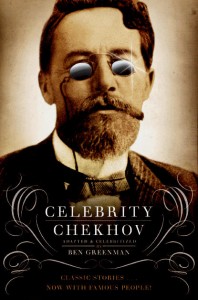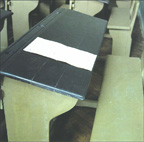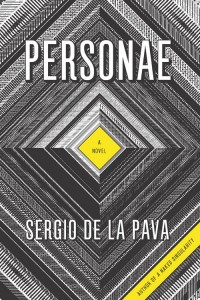ALL THE TEXTS I’D SEND YOU IF YOU WANTED TO GO TO A SERGIO DE LA PAVA TALK WITH ME ON DEAD RUSSIANS
…but then got ran over by a bus and died. No im totally kidding! but you really did get the flu and couldn’t join me.
The talk was at Housing Works, and it included two other speakers: David Gordon and Michael Kunichika.Your expectations were unclear: talk about Russian writers who, though they left us long ago, remain potent presences for readers and writers today. From Dostoevsky and Tolstoy to Vasily Grossman and Sigizmund Krzhizhanovsky, we’ll learn about obsession, madness, realism, fables, and more, in an event with all the drama and pathos (well, at least some of the drama and pathos) of the great Russian novels themselves.
Here are all the texts I would have sent you, in chronological order and without clarifying who said what, because color-coordinating via SMS goes a step too far:
truth-seeking urgency intrinsic in russian lit
antithesis to beckett & writers who focused extensively on beauty of language
falling in love w/ english language, less plot driven urgency
dostoevsky similar to conrad in terms of truth-seeking urgency
multivocality of dostoevsky
there is no right, just different truths
dostoevsky threw the best literary parties (metaphorically speaking, as a creator)
proust s parties were too long, and maybe the guests were wearing better clothes
abstract psychological curiosity in motives, including abnormalities–>russian approach
going in depth for big questions, characters not being introverted
serialization of lengthy works, such as ‘war & peace,’ adds towards creating a broader debate. they become part of the broader debates occurring during their time
some compare the creation of microcosms of russian lit to ‘the wire’
comparing to british office, where they look at the camera at moments of despair but the viewer cannot do anything to help // to embarrasing dostoevsky characters
nabokov disliked dostoevsky for his “bad writing”
dostoevsky had a v diff approach to writing from nabokov: almost got executed literally, then was told he had another five years
that is also why dostoevsky did not pursue inanimate writing, unlike tolstoy (?)
nabokov didn t like music!
neither did dostoevsky !! (probably diff reasons)
saul bellow s ‘dean of december’–>similar urgency in truth-seeking (someone from the audience)
can reading a book be so vivid it appears like a different life?
if yes, it depends on willingness of writers to go to great lengths in creating characters who go too far, embarrass themselves/ are visceral
perhaps a key element that helps bring about the urgent truth-seeking: religion s role for the writers
religion, like their fiction, was trying to explain what goes on beyond the physical
nabokov s direct ancestor was dostoevsky s jailor. weird how he was not willing to cut him any slack, considering
dostoevsky was crowd-pleasing oriented bc he lived off writing
MONEY!!!
February 11th, 2014 / 5:20 pm
A Dementedly Long Interview with Ben Greenman by Jaime Karnes
(Editor’s Note: A while back Roxane Gay reviewed Ben Greenman’s really fine short story collection, What He’s Poised to Do. Ben has another book coming out in early October, Celebrity Chekhov.)
“As an artist you have to have the confidence that it will be original once it passes through you.”

Ben Greenman is an editor at The New Yorker and author of numerous books of fiction, including Superbad, Superworse, A Circle is A Balloon and A Compass Both: Stories about Human Love, Correspondences, and Please Step Back. He also writes satirical musicals about the likes of Britney Spears and Sarah Palin; pens a political column by an earth ball; and maintains a website called Letters with Character that invites readers to write their favorite (or, in some cases, least favorite) fictional person.
This summer, Greenman’s What He’s Poised To Do was released by Harper Perennial; the Los Angeles Times called it “astonishing” and publications ranging from the Miami Herald to Bookslut agreed. His new collection, Celebrity Chekhov, publishes later this month. I met Ben in midtown and we wandered over to Bryant Park, where we discussed everything from a story collection’s “Albumness” to the potentially one-fingered Seth Rogen, whom Ben is famous for writing a comic letter to after the movie Superbad (same title as his book) was released.
October 1st, 2010 / 9:00 am
Classic Word Spaces 2: Chekhov’s Desk

I did a search for Chekhov’s desk and the above image was what came up.
There it is, everyone. Chekhov’s desk. As we all know, Chekhov was a physician. Thus, Chekhov cared about the health of his wrists. He wanted to be able to write without pain. This explains his use of a tilt-y desk, I’m guessing.
Remember those kneeling chairs everyone bought during the ’80s? You might not realize this, but in addition to inventing the modern short story, Chekhov also invented those. That’s why so many writers use them. They are good for your back and they also inspire you to write powerfully observed short fiction that limns the human condition in subtle, masterful ways.
Here’s a picture of someone using one. It may or may not be author Cynthia Ozick*:

* Disclaimer: This is probably not Cynthia Ozick.

